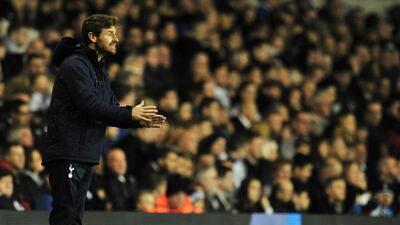“If you want to see happy endings, you go to the opera.” – Andre Villas-Boas, the Tottenham Hotspur manager, speaking this week on the injustice of penalty shoot-outs (his team had beaten Hull City in one, but lost to Basle in another, despite much practice).
It is probably unfair to mock Andre Villas-Boas for a lack of operatic knowledge. Climbing the greasy pole of football management is no mean feat, particularly when you are winning European titles at around the age when most of your contemporaries have only just given up their paper rounds.
Such a prodigious young life may not leave much time for cultural pursuits.
Nonetheless, one has to wonder: has AVB ever been to the opera? It is hardly an artistic medium famous for happy endings.
To see my point, he only needs to drive eight miles from White Hart Lane to London’s Royal Opera House, which is currently staging Verdi’s Les Vepres Siciliennes.
That final scene, when the wedding guests are massacred. Not exactly feel-good, is it?
Unless, of course, I am doing him a disservice. Perhaps footballers watch different versions of traditional operas, their plots tweaked to be more in keeping with the values of the gilded bubble in which they exist.
Perhaps in the football version of Rigoletto, the eponymous hunchback does not pay for his treachery toward his master by accidentally ordering the assassination of his own beloved daughter. Instead, he is fined a week’s wages and ordered to train with the reserve jesters.
In football’s La Traviata, is Violetta actually killed by tuberculosis or is she merely forced to do a lot of gym work and look at her diet, which is, y’know, frustrating for her because she just wants to get out there and do what she does best, but she knows she’s in great hands and she’s staying focused?
And in the Premier League’s special edition of Don Carlos, perhaps the hero is not dragged screaming into his early grave by a mad monk, but the closest footballing equivalent. A transfer to Stoke City, maybe?
For all of its tears and tantrums, Planet Football is a very happy place, mainly because no on-field tragedy ever resonates for more than a fortnight.
Take a relegated side, for example. In May, the players and fans collapse and weep as if they have suffered a family bereavement. By August, however, they are celebrating a 1-0 win over Yeovil Town as if they had just seen off Real Madrid.
The increasingly packed schedule only exacerbates the issue. When the FA Cup final was the finale to the season, I used to imagine the vanquished players spending all summer moping around.
Nowadays we can see them a week later, revved up and raring to snatch another three points in the Premier League, their Wembley Stadium tears long gone.
Operatic endings may be fictional but at least they are finite.
In sport there are no unhappy endings because there are no endings at all.
Football’s curtain never truly falls. The players merely pick themselves up, wash off the fake blood, pull out the prosthetic dagger, and start all over again.
***
Speaking of operas, a reasonable one could be written about this week’s bizarre spat between Sepp Blatter and Cristiano Ronaldo.
Addressing an event hosted by Oxford University Union, the Fifa president made a bizarre criticism of the Real Madrid star, calling him “a commander on the field of play” while miming what looked like a mumbling, stumbling hobo.
His meaning was not entirely clear but it certainly did not appear positive. To me, he seemed to be suggesting that Ronaldo considers himself to be far more impressive and powerful than he really is.
This is demonstrably untrue. For all his preening arrogance, which can be grating, Ronaldo actually is as good as he thinks he is.
Annoying but true.
But if Ronaldo is to be the wronged hero of this opera, and Blatter the odious villain, my scorn is reserved for the chorus: namely, the fawning Oxford Union audience.
Those young men and women are supposed to be the finest minds of their generation, future world leaders all.
Yet when Blatter performed this nonsense charade, not one of these brilliant and forensic brains thought to say: “Excuse me, old chap, but what are you on about?”
Instead they laughed at and even applauded his routine.
Presumably this is because they were flattered. Flattered to be in the presence of such a powerful man. Flattered that such a man would wish to win their approval by acting the clown. Flattered to be (metaphorically) bounced upon the knee of the football family daddy.
It is often claimed that Blatter treats Fifa like his personal fiefdom. Is it any wonder he feels able to do so, when he receives such sycophancy even when acting the fool?
sports@thenational.ae
Follow us on twitter at @SprtNationalUAE

